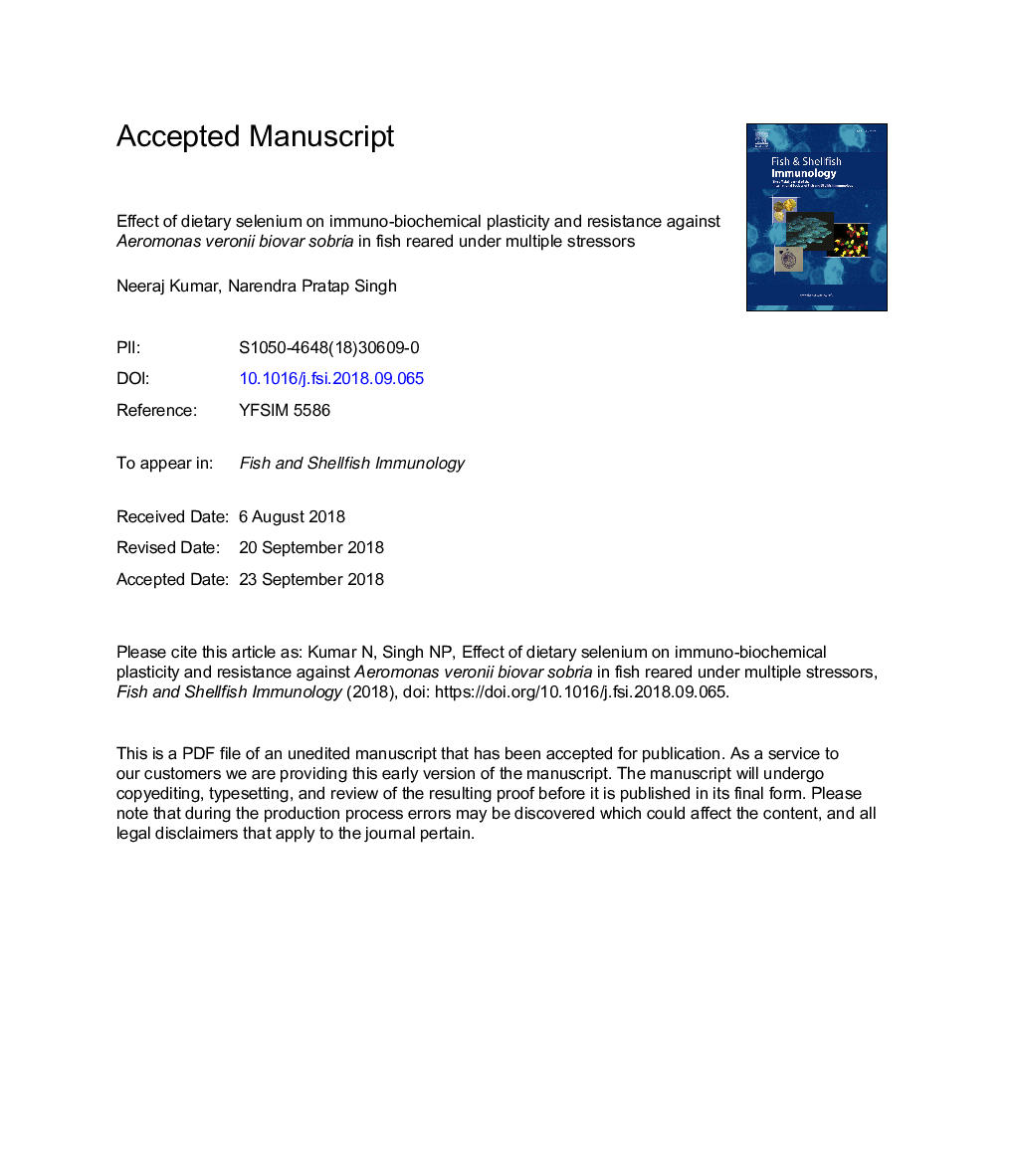| Article ID | Journal | Published Year | Pages | File Type |
|---|---|---|---|---|
| 11019421 | Fish & Shellfish Immunology | 2019 | 30 Pages |
Abstract
The present investigation aims to study role of dietary selenium (Se) on growth performance, oxidative stress markers (catalase, superoxide dismutase and glutathione-s-transferase), stress biomarkers [blood glucose, cortisol and heat shock protein (HSP 70) and immunological status, Nitro blue tetrazolium (NBT), total protein, albumin, globulin, A/G ratio, total immunoglobulin and vitamin C] and survival of fish after Aeromonas veronii biovar sobria challenged. Pangasianodon hypophthalmus was treated with lead (Pb, 4â¯ppm), and high temperature (34â¯Â°C) for 60 days. The growth performance was reduced with declined in feed intake, growth rate and feed efficiency in case of group exposed with Pb alone and concurrent exposure to Pb high temperature (34â¯Â°C). The Se has immunomodulatory properties however, supplementation of the dietary Se @ 1 and 2â¯mg/kg diet has been realistically improved growth performance up to 240%, elevated antioxidative status in different tissues, and immunological status were also improved significantly in the P. hypophthalmus. The bacterial challenged with A. veronii biovar sobria in the P. hypophthalmus resulting in less cumulative mortality (%) and high relative (%) survival has been observed with supplementation of dietary Se @ 1 and 2â¯mg/kg diet. The bioaccumulation of Pb in muscle tissue has been also drastically reduced with supplementation of dietary Se in feed. Hence, overall results indicated that, dietary Se @ 1 and 2â¯mg/kg have ability to enhanced overall performance and alleviated multiple stresses in P hypophthalmus.
Related Topics
Life Sciences
Agricultural and Biological Sciences
Aquatic Science
Authors
Neeraj Kumar, Narendra Pratap Singh,
